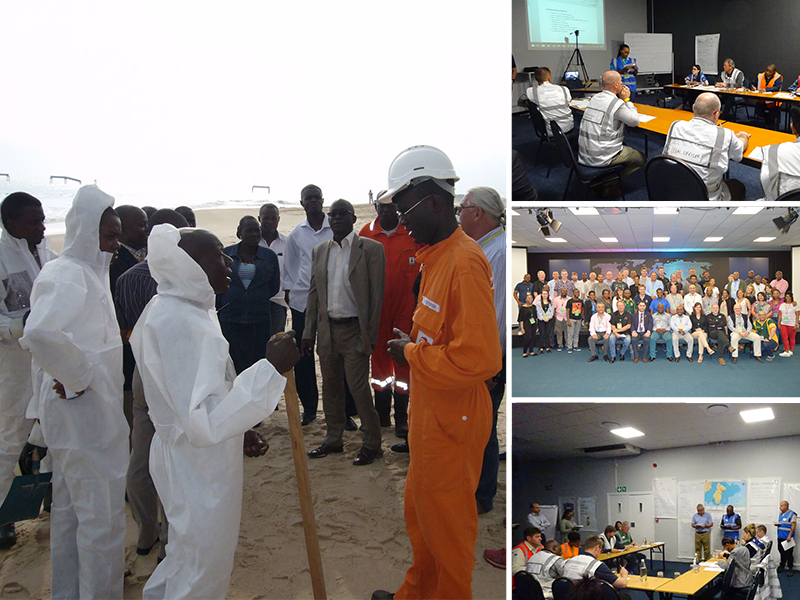With important maritime traffic and offshore oil and gas exploration and production off the coast of South Africa, there is increased risk of an oil spill occurring, which poses a threat to the marine environment and wildlife.
Improving the efficiency, effectiveness and management of emergency response operations for both governments and industry alike is a key element in minimizing environmental and socio-economic impacts of oil spills.
To address this, a two-day Incident Management System Training Course was held in South Africa (6-7 November) to help participants test their National Oil Spill Contingency Plan and deepen their understanding of the roles and responsibilities of various stakeholders and entities in preparing for and responding to oil spills.
More than 60 South African delegates from governmental and industry bodies attended the event which was hosted by the Ministry of Transport and and its agency, the South African Maritime Safety Agency (SAMSA), in cooperation with the Ministry of environment, forests and fisheries under the operation Phakisa.
This IMO activity was carried out within the framework of the Global Initiative for West, Central and Southern Africa (GI WACAF), a partnership between IMO and IPIECA, with the goal to enhance the capacity of GI WACAF countries to prepare for and respond to marine oil spills.
For 13 years, the Project has been supporting its partner countries, helping to build the skills necessary to support their development.
